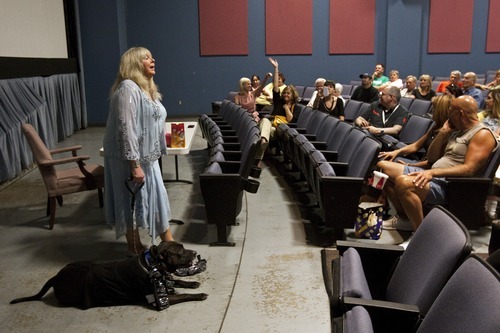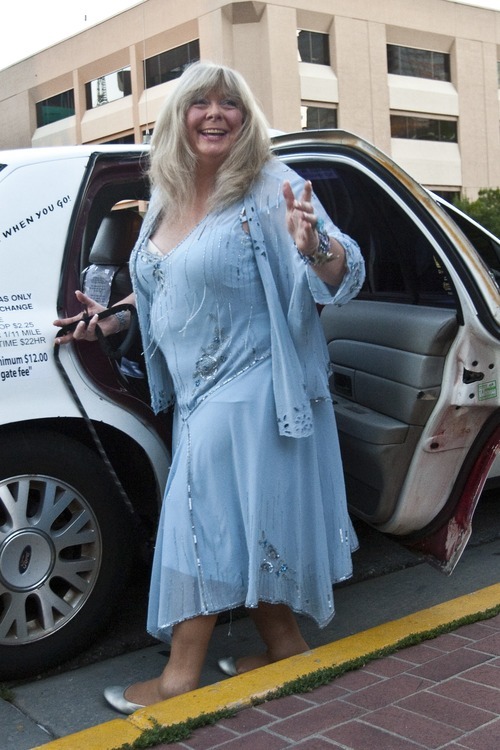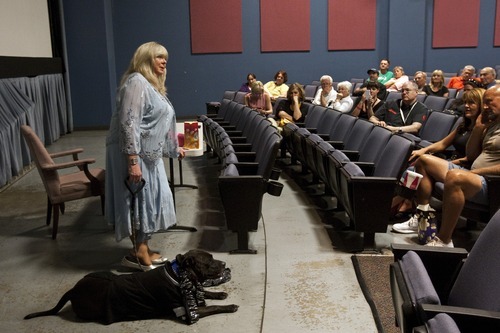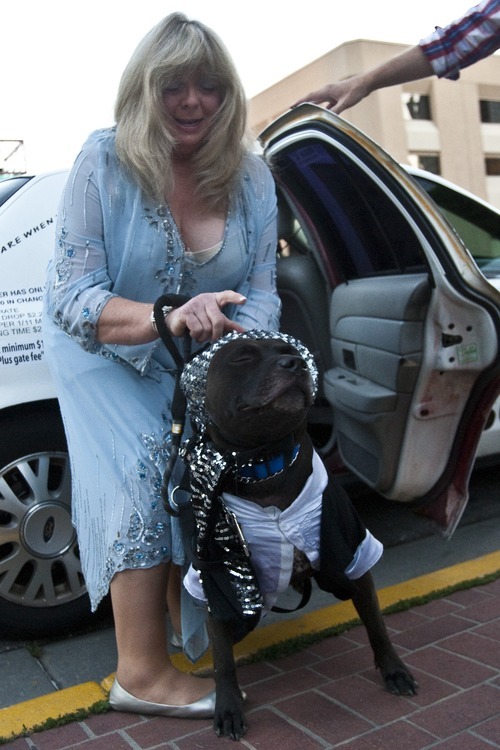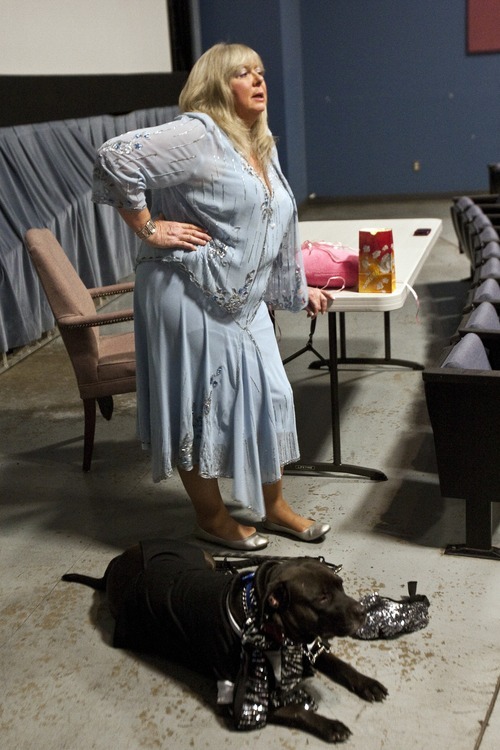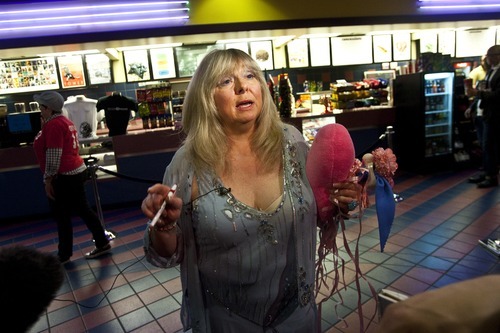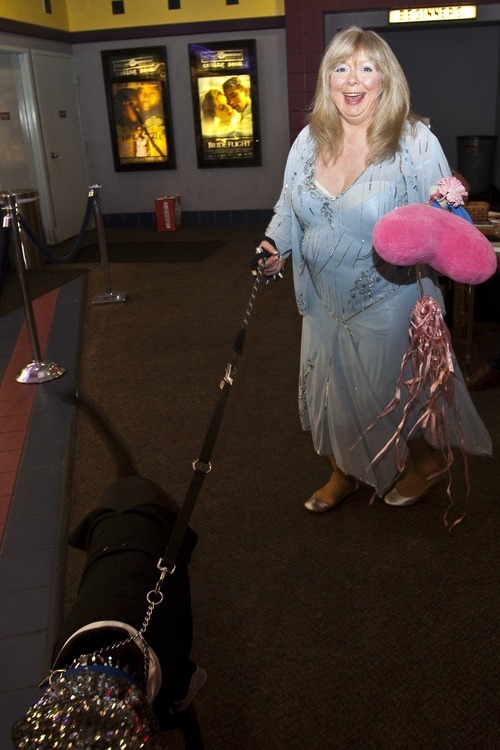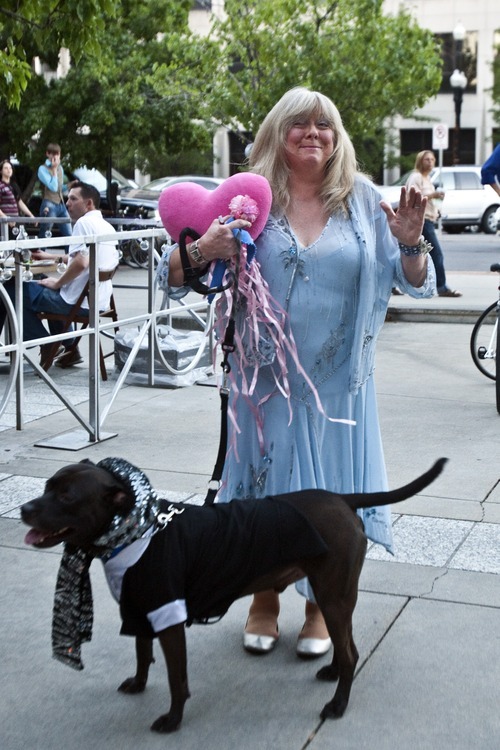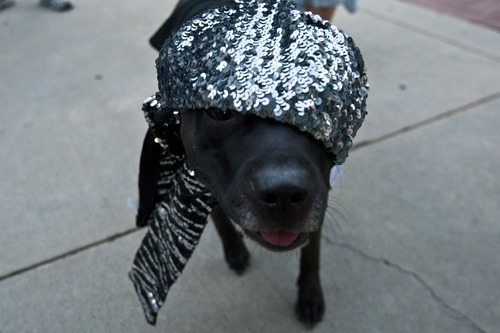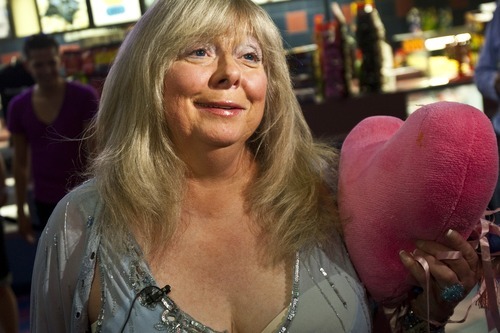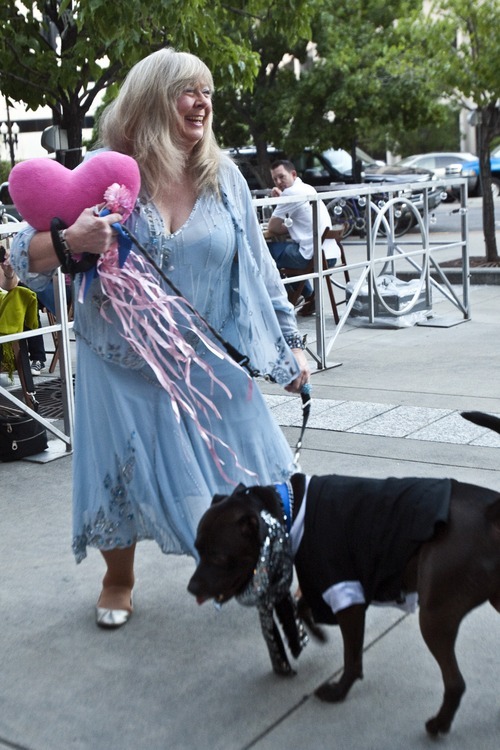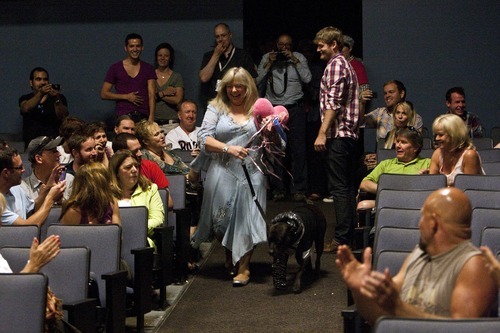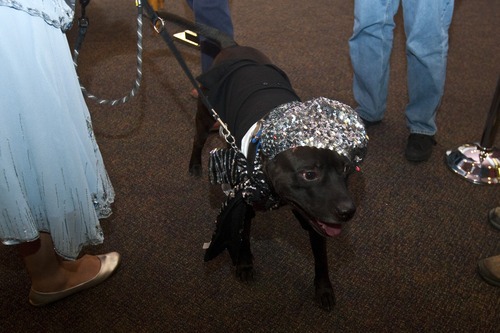This is an archived article that was published on sltrib.com in 2011, and information in the article may be outdated. It is provided only for personal research purposes and may not be reprinted.
"The Case of the Manacled Mormon" may finally see a courtroom.
Joyce McKinney, the former Wyoming beauty queen accused in 1977 of kidnaping an LDS missionary in Britain, has filed a defamation lawsuit against Oscar-winning filmmaker Errol Morris over Morris' documentary "Tabloid."
The lawsuit was filed Wednesday in Los Angeles Superior Court. It names Morris as a defendant, along with the film's producer Mark Lipson, distributors Sundance Selects and IFC Films, and several production companies, TV companies and individuals.
According to the movie-industry website Deadline.com, McKinney charges Morris et al with "misappropriation of likeness, defamation, misrepresentation, fraud, intentional infliction of emotional distress and breach of contract." She is seeking unspecified compensatory and punitive damages.
The lawsuit's charges mirror accusations McKinney made on July 15, when she visited Salt Lake City for the opening of "Tabloid" at the Broadway Centre Cinemas. She regaled the Broadway audience with her version of events, saying that Morris approached her about making a TV series about victims of paparazzi. She also accused producers of obtaining photos and newspaper clippings from her under false pretenses.
"I had no idea they were going to do this trashy movie," she said in July, adding that she was planning a lawsuit.
Morris' movie tells McKinney's story, primarily using McKinney's own words, of how she fell in love with Utahn Kirk Anderson — and how that romance was thwarted when he was sent to England on a mission for The Church of Jesus Christ of Latter-day Saints. McKinney followed him and, according to Scotland Yard, she kidnapped Anderson and tied him to a bed in a Devon "love cottage."
The story, dubbed "The Case of the Manacled Mormon," was a tabloid sensation in Britain in 1977 and 1978. One paper told McKinney's side of the story, characterizing her as an innocent woman rescuing her love from what she considered (and still considers) a cult. A rival paper countered by unearthing photos of McKinney during her modeling career, including images of soft-core porn and bondage.
McKinney was never tried in a British courtroom. She and an accused accomplice, Keith May, jumped bail in 1978 and returned to the United States, and there was no effort made to extradite them back to the United Kingdom. (May died in 2004.)
McKinney fell out of the public eye for many years, only to resurface in 2008 when a Korean company announced that it had successfully cloned a dog — a pit bull owned by McKinney. (She brought one of the cloned dogs, Booger Hong, with her to Salt Lake City in July.)
"Tabloid" has played at numerous film festivals, often with McKinney showing up to refute the movie's telling of the story. It was released to U.S. theaters and video-on-demand this summer, and hit DVD shelves Tuesday.
Calls to McKinney and representatives for IFC Films, the distributor of "Tabloid," were not returned Friday.
movies@sltrib.com


